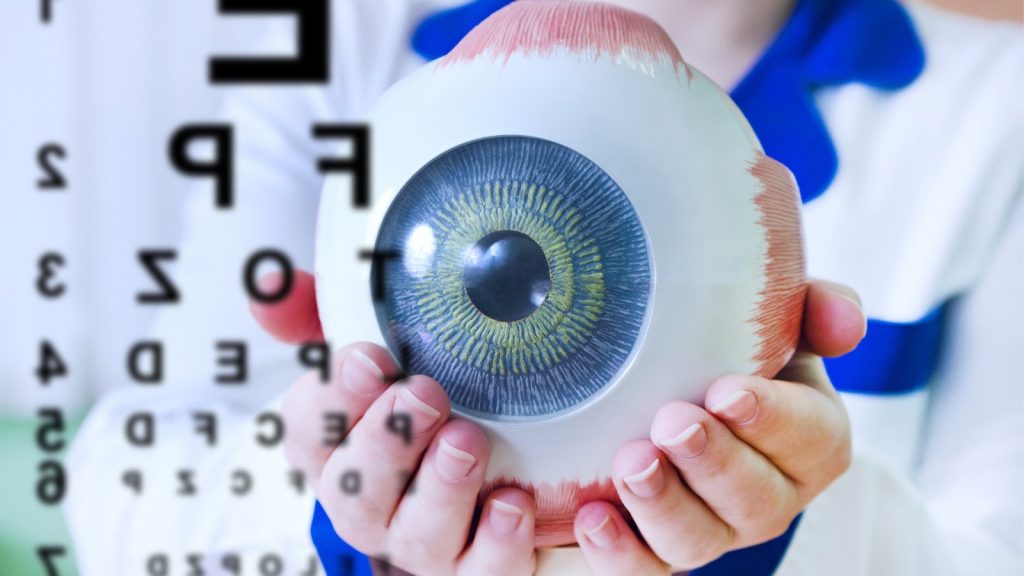High-Quality Retina Service Near Me: Leading Eye Treatment Providers
High-Quality Retina Service Near Me: Leading Eye Treatment Providers
Blog Article
Comprehending the Numerous Eye Issues Dealt With by Specialized Eye Treatment Professionals
In the realm of eye care, specialized specialists play an essential role in diagnosing and dealing with a broad range of eye problems. From usual refractive mistakes that influence vision clearness to age-related problems that pose difficulties as we expand older, the competence of these experts reaches managing vision-threatening diseases and elaborate corneal disorders. Moreover, the intricacies of neurological eye conditions existing distinct challenges that require specialized care. As we start this expedition of the different eye problems attended to by specialized eye treatment experts, it comes to be obvious that the complex internet of ocular health holds a myriad of fascinating insights waiting to be uncovered.
Typical Refractive Mistakes
Refractive mistakes are common aesthetic conditions triggered by an imperfection in the eye's ability to appropriately focus light, resulting in blurred vision. Astigmatism is characterized by an irregularly designed cornea, resulting in altered or blurred vision at all ranges. Presbyopia is an age-related problem where the lens loses its flexibility, making it tough to concentrate on close things.
These refractive mistakes can be remedied via various approaches, consisting of glasses, call lenses, or refractive surgical procedure. Eye treatment professionals play a critical role in identifying and managing refractive errors to aid individuals achieve more clear vision and boost their lifestyle.
Age-Related Eye Conditions
One of the most widespread age-related eye conditions is age-related macular deterioration (AMD), a condition that triggers central vision loss and can make activities like reading and driving difficult. Cataracts, an additional typical condition amongst older people, cause clouding of the eye's all-natural lens, leading to blurred vision. Normal eye exams with specialized eye treatment professionals are important for early discovery and monitoring of these age-related eye problems to preserve vision and keep ocular wellness as individuals expand older.
Vision-Threatening Illness
Vision-threatening illness include a series of serious eye problems that have the potential to substantially affect an individual's vision and general aesthetic feature. These conditions present a danger of permanent vision loss if not immediately identified and dealt with by specialized eye treatment specialists. Some usual vision-threatening conditions consist of glaucoma, diabetic person retinopathy, age-related macular deterioration (AMD), and retinal detachment.
Glaucoma is a group of eye problems that damage the optic nerve, commonly as a result of high intraocular stress, resulting in field of vision loss and prospective loss of sight if left unattended. Diabetic retinopathy is a problem of diabetes mellitus that affects capillary in the retina, causing vision impairment or blindness. AMD is a progressive condition affecting the macula, causing central vision loss. Retinal detachment happens when the retina divides from its underlying tissue, leading to unexpected vision loss that needs immediate clinical attention (refractive surgeries in al).
Early detection, normal eye examinations, and prompt treatment are vital in handling vision-threatening conditions to protect eyesight and preserve lifestyle. Specialized eye treatment specialists play a crucial function in diagnosing, treating, and managing these problems to avoid irreversible vision loss.

Corneal Disorders
Corneal conditions include a spectrum of conditions that influence the clear front component of the eye, recognized as the cornea. These problems can result in pain, visual disruptions, and in extreme cases, straight from the source vision loss. One usual corneal disorder is keratoconus, where the cornea thins and bulges outward into a cone shape, triggering astigmatism and blurred vision. Corneal dystrophies, such as Fuchs' dystrophy, result in progressive vision loss as a result of abnormal down payments in the cornea. Corneal abrasions, often created by injury or international objects, can result in pain, inflammation, and level of sensitivity to light. In addition, infections like keratitis can inflame the cornea, possibly leading to scarring and vision disability if not without delay treated. Treatment for corneal disorders differs depending on the specific problem yet may include drugs, get in touch with lenses, or in serious instances, corneal transplants. Regular eye examinations are crucial for very early discovery and monitoring of corneal disorders to preserve vision and eye health.
Neurological Eye Problems
Neurological eye conditions involve problems that affect the link in between the eyes and the mind, influencing visual handling and general eye function. These problems can materialize in different means, impacting vision, eye activities, and even the sychronisation in between the eyes. One common neurological eye problem is optic neuritis, characterized by swelling of the optic nerve causing vision loss, color desaturation, and discomfort Find Out More with eye motion.
Another significant problem is nystagmus, where the eyes make repeated, unrestrained activities, impacting visual skill and depth understanding. Additionally, problems like amblyopia, commonly described as "careless eye," result from irregular aesthetic advancement in early childhood years, causing decreased vision in one eye.
Neurological eye problems need specialized care from professionals like neuro-ophthalmologists who have experience in both neurology and ophthalmology. Medical diagnosis typically involves an extensive eye exam, view imaging studies, and partnership with neurologists to deal with the underlying neurological issues impacting the visual system. Treatment strategies can include drug, vision therapy, or in extreme instances, surgical interventions to take care of these complicated problems properly.

Conclusion
To conclude, specialized eye care experts treat a large range of eye problems, consisting of typical refractive errors, age-related eye conditions, vision-threatening diseases, corneal disorders, and neurological eye conditions - refractive surgeries in al. By recognizing these different conditions and seeking appropriate therapy from eye care specialists, individuals can preserve optimal eye health and wellness and vision. It is very important to prioritize regular eye examinations and follow suggested therapy strategies to preserve and protect one's vision for the future
Report this page